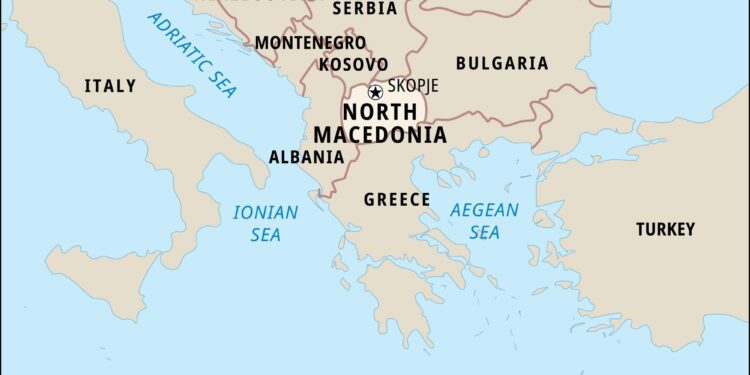North Macedonia’s Oilko KDA has modestly increased its ownership stake in Makpetrol, the country’s leading fuel distributor, according to recent disclosures. The incremental investment signals continued confidence in the domestic energy sector, as the company seeks to strengthen its position amid evolving market dynamics. This development comes at a time when regional energy markets are experiencing shifts prompted by economic and geopolitical factors.
North Macedonia’s Oilko KDA Increases Holdings in Makpetrol Strengthening Market Position
Oilko KDA, a leading energy firm in North Macedonia, has marginally increased its stake in Makpetrol, the nation’s largest oil distributor. This strategic move reinforces Oilko KDA’s commitment to consolidating its foothold in the domestic fuel supply market, enhancing its influence over pricing and distribution channels. The acquisition, though slight, reflects the company’s confidence in Makpetrol’s operational efficiency and future growth potential amid a competitive market environment.
Industry experts suggest this incremental increase could lead to several benefits including:
- Expanded retail network reach, tapping into underserved regions.
- Improved supply chain integration to reduce costs.
- Stronger bargaining power with international fuel suppliers.
| Ownership Before | Ownership After | Market Impact |
|---|---|---|
| 48.7% | 50.3% | Increased control over strategic decisions |
| – | – | Potential for expanded product offerings |
Implications of the Stake Adjustment on Makpetrol’s Strategic Growth and Regional Influence
The recent increase in Oilko KDA’s stake in Makpetrol marks a subtle but strategic repositioning within North Macedonia’s energy sector. By deepening its investment, Oilko KDA signals confidence in Makpetrol’s business model and its potential to capitalize on both domestic energy demands and emerging regional markets. This bolstered partnership is expected to reinforce Makpetrol’s financial backbone, enabling it to pursue expansion initiatives with renewed vigor and agility amid a competitive landscape. Key anticipated outcomes include enhanced operational efficiency, innovation in retail fuel services, and more robust supply chain integration across the Balkans.
From a broader geopolitical perspective, the stake adjustment amplifies Makpetrol’s regional influence, positioning it as a more formidable player in Southeastern Europe’s energy arena. With Oilko KDA’s expanded role, collaborative ventures could accelerate, fostering cross-border investments and unlocking new growth corridors. Strategic priorities likely to benefit are:
- Expansion of fuel distribution networks into neighboring countries
- Investment in sustainable energy projects and infrastructure upgrades
- Increased bargaining power in regional energy policy discussions
| Area of Impact | Expected Effect | |||||||||||||||||
|---|---|---|---|---|---|---|---|---|---|---|---|---|---|---|---|---|---|---|
| Financial Stability | Stronger capital reserves to support growth | |||||||||||||||||
| Regional Expansion | Access to new markets in the Balkans | |||||||||||||||||
| Innovation & Sustainability | The recent increase in Oilko KDA’s stake in Makpetrol marks a subtle but strategic repositioning within North Macedonia’s energy sector. By deepening its investment, Oilko KDA signals confidence in Makpetrol’s business model and its potential to capitalize on both domestic energy demands and emerging regional markets. This bolstered partnership is expected to reinforce Makpetrol’s financial backbone, enabling it to pursue expansion initiatives with renewed vigor and agility amid a competitive landscape. Key anticipated outcomes include enhanced operational efficiency, innovation in retail fuel services, and more robust supply chain integration across the Balkans. From a broader geopolitical perspective, the stake adjustment amplifies Makpetrol’s regional influence, positioning it as a more formidable player in Southeastern Europe’s energy arena. With Oilko KDA’s expanded role, collaborative ventures could accelerate, fostering cross-border investments and unlocking new growth corridors. Strategic priorities likely to benefit are:
|
















